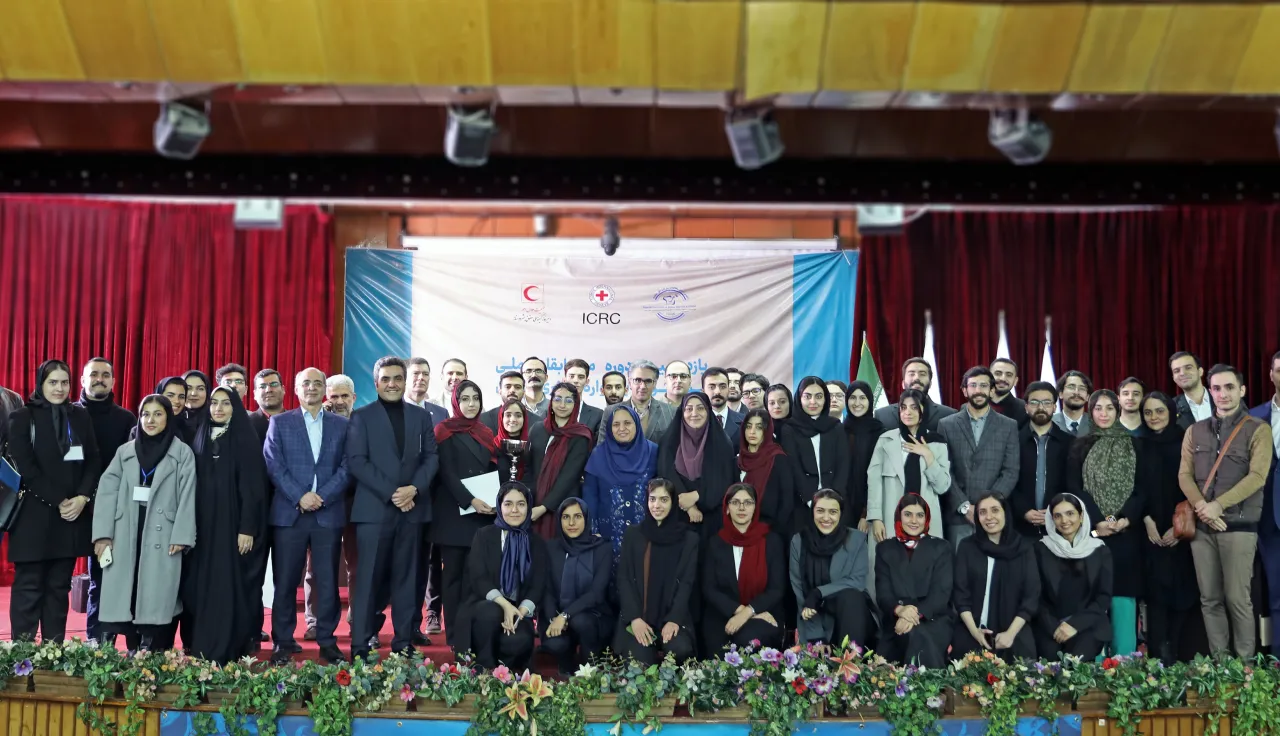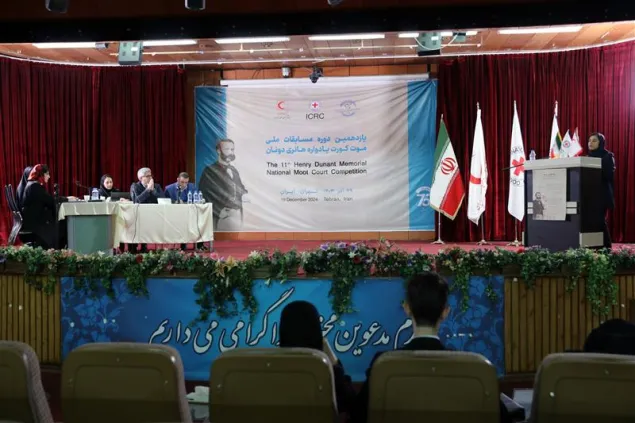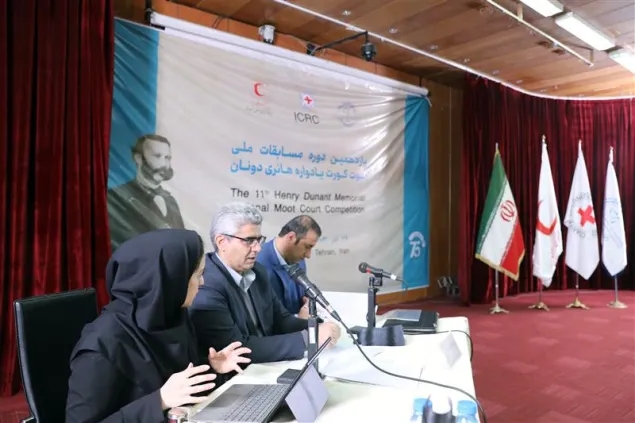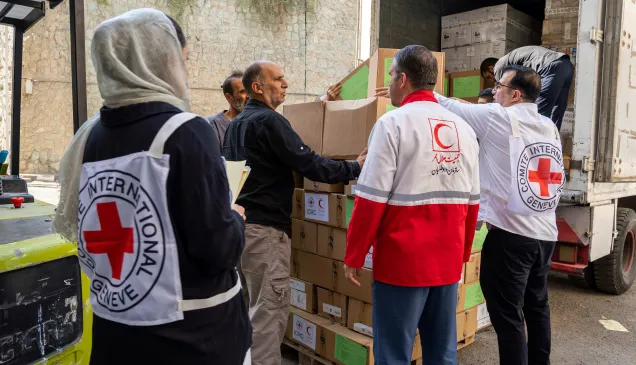Iran: Moot Court Competition Memorial of Henry Dunant

The 11th National round of the Henri Dunant Memorial Moot Court Competition (a simulation of the International Criminal Court) was jointly held by the International Committee of the Red Cross (ICRC) delegation in Iran, the International Affairs Department of the I. R. of Iran Red Crescent Society (IRCS), the Secretariat of the National Committee for Humanitarian Rights (NCHL) and the Iranian Association for United Nations Studies (IAUNS).
University of Tehran team, consisting of Aida Modarresi, Fatemeh Sabzaei, and Atena Sirizinejad coached by Mr. Ali Masoudian won this round of competetion and qualified for attending the Hong Kong regional round as the Iranian national team.
In cooperation with the ICRC delegation in Iran, the IRCS Int. Dept., the NCHL and IAUNS, the event took place on Thursday, December 20 at the IRCS premises during which eight participating teams of law students from Iranian universities across the country competed with the aim of raising awareness of the International Humanitarian Law (IHL) and teaching knowledge of the IHL and the International Criminal law.

Speaking at the closing ceremony of this competition, Vincent Cassard, ICRC Head of Delegation in Iran, expressed his pleasure at resumption of this event following a hiatus of several years, and praised the quality work of the participants, especially the finalists: “International humanitarian law embedded in the Geneva Conventions are not merely a historical artefact, they represent a collective aspiration to mitigate human suffering during times of armed conflict.
The foundational principles of the Geneva Conventions stem from a simple yet profound commitment: to protect those who do not participate in hostilities and to ensure humane treatment for those who can no longer fight due to capture, injury, or illness. These Competitions play a vital role in fostering respect for humanitarian norms, building networks of well-informed professionals, and inspiring future lawyers, magistrates, military personnel, and decision makers to engage with IHL. The ICRC organizes and supports events like the Henry Dunant Moot Court to cultivate the next generation of advocates and defenders of humanitarian principles.
For students, it is a unique opportunity to deepen their knowledge of IHL, enhance advocacy skills, and develop teamwork. A moot court is not only about a learning experience or a competition. I hope it will instigate interest and passion to support international Humanitarian Law.”
Appreciating the efforts made to hold these competitions, Razieh Alishvandi, Under Secretary-General for the International Affairs and Humanitarian Law of the IRCS said: “The participation and competition of students in these competitions, regardless of the result, is the real victory, and participating in this scientific competition is an important step towards realizing our country’s international commitment under the four Geneva Conventions for the education and promotion of IHL in Iran at the national level. Undoubtedly, participation in this competition deepens the process of increasing knowledge in the field of international humanitarian law among the young lawyers of the country, which will ultimately lead to the systematic establishment and dissemination of the principles, rules, and concepts of the IHL.
Within the framework of their legal mandate to educate and promote the international humanitarian law and relying on the seven fundamental principles of the RCRC Movement, the IRCS and NCHL believe that the scientific and executive capacities of the country’s legal community in the field of producing and publishing books, articles and dissertations are exemplary and important, and this has already doubled our determination to continue these competitions in coming years. Further, having rich and valuable civil institutions such as the IAUNS as a partner, as well as the active presence and continuous support of the ICRC in Iran as our main partner from the Movement in the field of education and promotion of humanitarian law, confirm such claim.”

Finally, other winners of this round of competition were selected as follows: Aida Modarressi, winner of the title of the best presenter, bill of the University of Tehran team, winner of the best bill presented, and, Azimeh Rokhundeh from Allameh Tabataba’i University, winner of the title of the best researcher.



